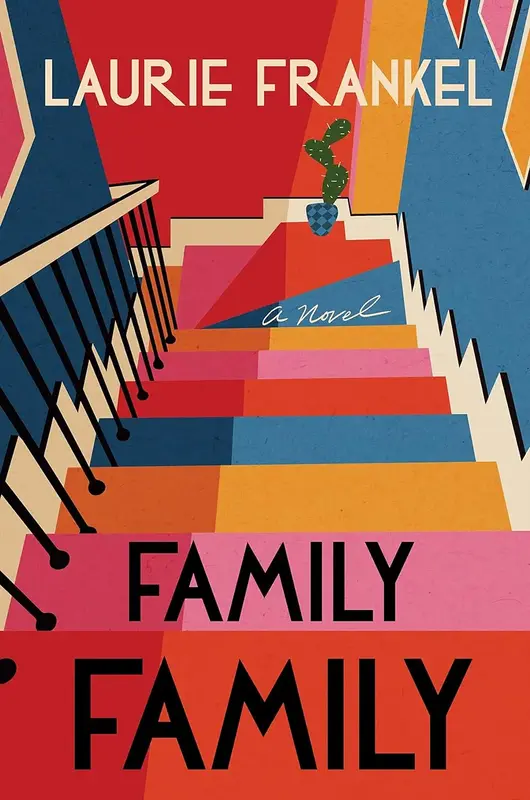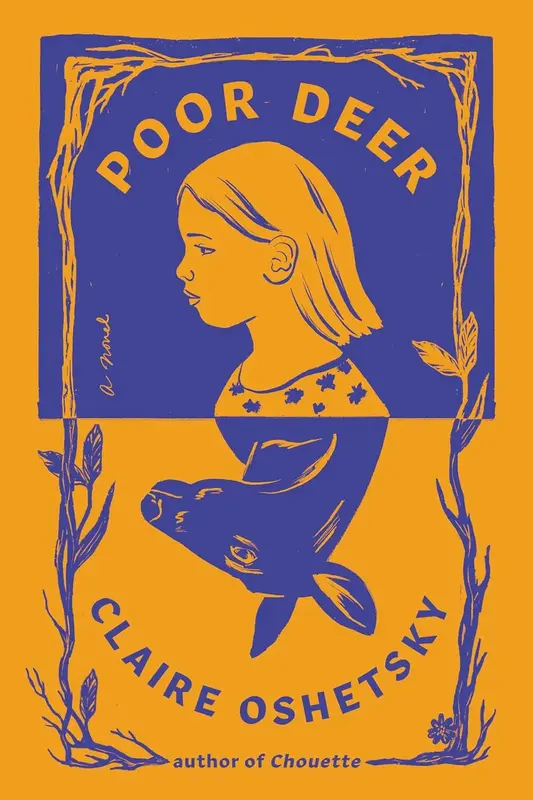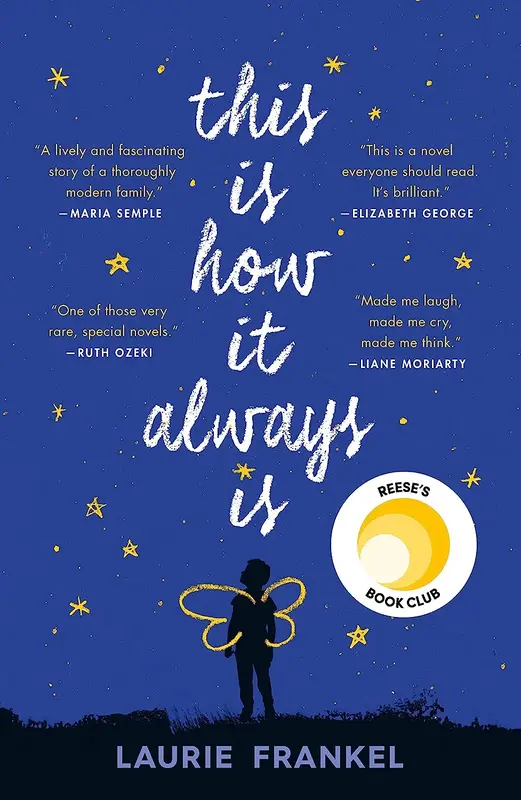This post may contain affiliate links. Read more here.
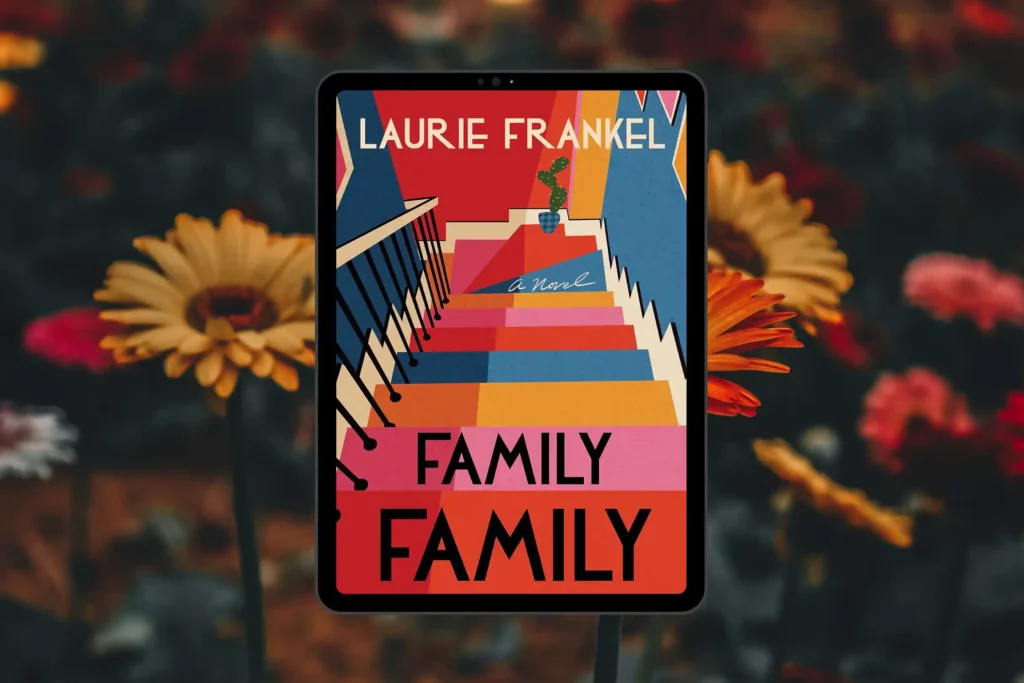
Book club questions for Family Family by Laurie Frankel explore the themes of identity, adoption, and the multifaceted nature of family relationships.
This is a very likable story. India is very funny, smart, gifted and a unique character. And the book has an important message: when you think about adoption, you may not always think about it in a happy or joyous light. There is always that trauma or tragedy that seems to overtake it.
This is such a good book choice if you want a true and important story that will have you in your feels. I will definitely be on the lookout for more books by this author.
Let me know your thoughts about the novel! Feel free to comment below.
Family Family by Laurie Frankel
In this blog post you will find the discussion questions for Family Family by Laurie Frankel.
Book club discussions may also delve into the portrayal of adoption in media, the impact of societal expectations on individual narratives, and the challenges of breaking away from stereotypical depictions.
Have a wonderful book club discussion! ✨
About the Author | Book Club Questions
About the Story
Family Family follows the life of India Allwood, an aspiring actor turned Broadway sensation and TV superhero. When India, an adoptive mom in real life, is cast in a movie about adoption that perpetuates clichéd narratives of tragedy, she decides to break the mold.
In an unprecedented move, India candidly reveals to a journalist that the movie is far from an accurate portrayal. This sets off a media frenzy, with India facing criticism from various quarters – the press, paparazzi, protesters on the right, and advocates on the left. Recognizing the need for support, India turns to her family, but the situation becomes more complicated because India is not just an adoptive mother.
As the story unfolds, it explores the complexity of family dynamics, challenging conventional notions that family is defined by blood or love alone. This novel unravels the truth that family, regardless of its formation, is inherently intricate and defies easy categorization.
About the Author
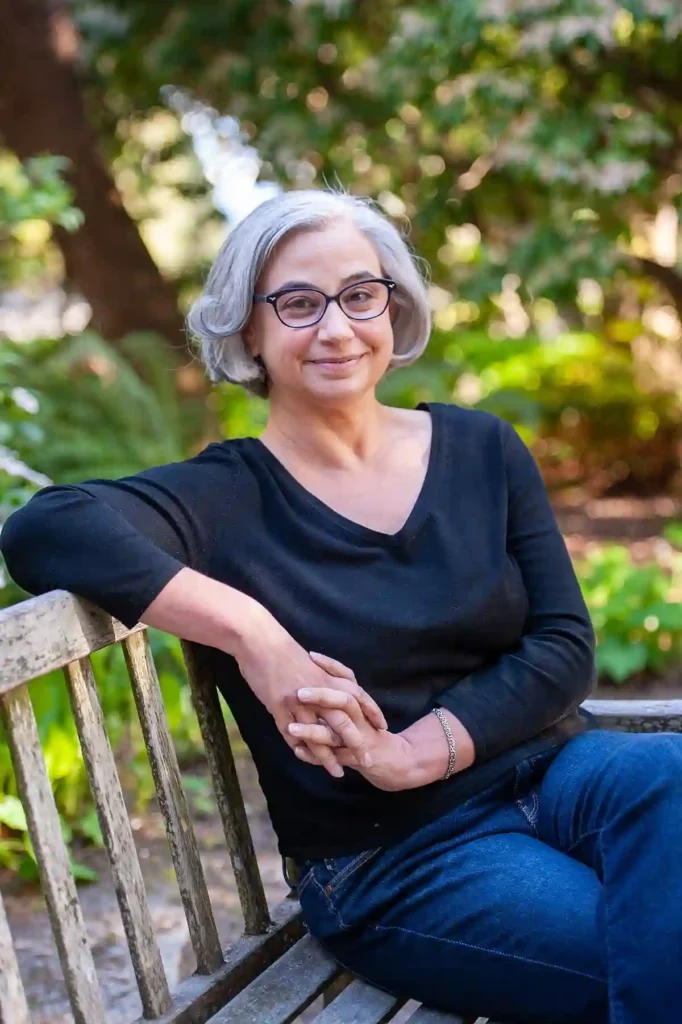
Laurie Frankel is a distinguished author, recognized for her New York Times bestselling novels and her contributions to reputable publications like The New York Times, The Guardian, and The Washington Post. With five novels to her name, such as The Atlas of Love, Goodbye For Now, or One Two Three, Laurie has earned accolades such as the Washington State Book Award and the Endeavor Award.
Transitioning from a former career as a college professor, Laurie now resides in Seattle, Washington, where she focuses on writing full-time. Her novels, characterized by depth and emotional resonance, have not only achieved critical acclaim but have also been optioned for adaptation into film and television. Laurie’s literary influence extends globally, with her works translated into more than twenty-five languages.
Book Club Questions for Family Family
Disclaimer: the following discussion questions contain spoilers, so proceed with caution if you haven’t finished the book yet.
- How does India’s journey from an awkward sixteen-year-old to a Broadway ingenue and a TV superhero contribute to her character development? What key moments or decisions shape her identity?
- Explore the consequences of India’s decision to speak out against the movie. How does the media portrayal of adoption impact both India’s personal life and her public image? Discuss specific scenes that highlight the challenges she faces.
- Compare and contrast India’s family dynamics during her teenage years with her family life in the present. How do her experiences as a teenager influence her decisions and perspectives as an adoptive mother?
- When thinking about adoption, what books, movies, or TV shows come to mind for you? How have these media representations shaped your perceptions of adoption, and how does “Family Family” align with or challenge those messages?
- Fig and Jack use creative language to rename scary things as a way to cope with trauma. How does their approach to language reflect the power it holds in processing difficult experiences? Do you have unique words or terms within your own family or close relationships?
- Robbie and India share a supportive relationship despite their young age. How do you think their connection influences India and Robbie individually, both immediately and in the long run?
- The novel unfolds across two timelines, revealing India’s past. How does understanding India’s childhood and adolescence contribute to your comprehension of her decisions as an adult? How does her upbringing compare to that of her children?
- The role of index cards in India’s life is significant. How much of her success is attributed to talent, and how much to grit, determination, or compromise? Discuss how these elements shape her journey.
- Compare India’s relationships with Davis and Robbie, especially in response to unexpected pregnancies. How do their reactions differ initially and evolve over the years?
- India reflects on the idea that a dream job is still a job. How are her lifelong dreams realized, and in what ways do they differ from her expectations? Discuss the sacrifices she makes along the way. What are your own dream jobs, and how do you envision them realistically?
- Explore the double standards and biases India faces as a woman in the art world. How do these challenges evolve throughout her life?
- India faces criticism from various groups over the course of the story. Whose reactions seem reasonable, and whose do not? How do these voices impact her life, family, and career? Consider how external opinions affect your own life.
- Fig and Jack respond differently to their trauma. Discuss their coping mechanisms and how their characters change as their family expands.
- Were you surprised by the existence of Lewis? Why or why not?
- The book incorporates humor as a significant element. Identify instances where humor is used as a coping mechanism for characters facing challenging situations. How does humor contribute to the overall tone of the narrative?
- Discuss the symbolism behind India’s habit of carrying confetti. How does this recurring element reflect her personality, and in what ways does it tie into the broader themes of the story?
- Explore how the novel addresses the intersectionality of women’s rights, particularly through India’s experiences. How does her journey in the entertainment industry intersect with broader conversations about gender equality and representation?
- Analyze how India’s actions and the media storm affect Fig and Jack, her twin ten-year-olds. How do they navigate the complexities of their family situation, and what role do they play in shaping the narrative?
- The adopted children in the story have diverse experiences and perspectives. Compare and contrast their views on adoption and identity. How do issues like race, sexuality, and trauma contribute to their unique experiences?
- Were you surprised by India’s decision to become an adoptive parent? How does the adoption process differ for her in various stages of her life? Compare her experiences with Jack and Fig’s birth mother.
- India’s mother provides insight into the challenges of parenting. How does India’s experience of motherhood compare to her mother’s and Camille’s? How do her experiences with adoption influence her approach to motherhood?
- Despite their differences, in what ways do the adopted children behave like siblings? How do the adults in the story also exhibit familial behavior?
- Bex has shaped India’s and Robbie’s lives, even though they haven’t seen her in years. Discuss how children shape their parents’ lives, and vice versa.
- How does the novel challenge the traditional portrayal of adoption in literature and media? Identify specific scenes or dialogues that contribute to this reimagining.
- Share and discuss quotes or passages that stood out to you. Are there specific lines that encapsulate the essence of the book or offer profound insights into the characters’ experiences?
- Examine the roles of Camille and Drew in the narrative. How do their perspectives add depth to the story, and in what ways do they contribute to the exploration of unconventional family structures?
- Consider the impact of the multiple timelines on your engagement with the story. How does the non-linear narrative enhance the understanding of characters and their motivations?
- The novel challenges the notion that love alone makes a family. What, in your opinion, defines a family if it isn’t solely biology or love? How might we expand the definition of family to be more inclusive and accurate?
- At the end of the novel, are you rooting for India to end up with Davis, Robbie, or neither?
- What are your hopes for the future of the family and characters in the story? How do you think their coming together will impact their lives moving forward?
- Revisit the epigraph at the beginning of the book. What does it mean, and why does the novel begin this way? How do characters learn and grow throughout the story?
- Share personal reflections on how the book may have influenced your perspectives on family, adoption, or women’s rights. Did any particular aspect of the story resonate with your own experiences or beliefs?
Additional Recommendations
Hope you enjoyed the book club discussion questions and reading guide for Family Family by Laurie Frankel. Here are some more of my book club recommendations with themes related to this book, along with their synopses:
Poor Deer by Claire Oshetsky
A wondrous, tender novel about a young girl grappling with her role in a tragic loss—and attempting to reshape the narrative of her life—from PEN/Faulkner Award nominee Claire Oshetsky
Margaret Murphy is a weaver of fantastic tales, growing up in a world where the truth is too much for one little girl to endure. Her first memory is of the day her friend Agnes died.
No one blames Margaret. Not in so many words. Her mother insists to everyone who will listen that her daughter never even left the house that day. Left alone to make sense of tragedy, Margaret wills herself to forget these unbearable memories, replacing them with imagined stories full of faith and magic—that always end happily.
Enter Poor Deer: a strange and formidable creature who winds her way uninvited into Margaret’s made-up tales. Poor Deer will not rest until Margaret faces the truth about her past and atones for her role in Agnes’s death.
Heartrending, hopeful, and boldly imagined, Poor Deer explores the journey toward understanding the children we once were and the stories we tell ourselves to make sense of life’s most difficult moments.
Good Material by Dolly Alderton
Andy loves Jen. Jen loved Andy. And he can’t work out why she stopped.
Now he is. . .
Without a home
Waiting for his stand-up career to take off
Wondering why everyone else around him seems to have grown up while he wasn’t looking
Set adrift on the sea of heartbreak, Andy clings to the idea of solving the puzzle of his ruined relationship. Because if he can find the answer to that, then maybe Jen can find her way back to him. But Andy still has a lot to learn, not least his ex-girlfriend’s side of the story…
In this sharply funny and exquisitely relatable story of romantic disaster and friendship, Dolly Alderton offers up a love story with two endings, demonstrating once again why she is one of the most exciting writers today, and the true voice of a generation.
This Is How It Always Is by Laurie Frankel
“Every once in a while, I read a book that opens my eyes in a way I never expected.” ―Reese Witherspoon (Reese’s Book Club x Hello Sunshine book pick)
This is how a family keeps a secret…and how that secret ends up keeping them.
This is how a family lives happily ever after…until happily ever after becomes complicated.
This is how children change…and then change the world.
This is Claude. He’s five years old, the youngest of five brothers, and loves peanut butter sandwiches. He also loves wearing a dress, and dreams of being a princess.
When he grows up, Claude says, he wants to be a girl.
Rosie and Penn want Claude to be whoever Claude wants to be. They’re just not sure they’re ready to share that with the world. Soon the entire family is keeping Claude’s secret. Until one day it explodes.
Laurie Frankel’s This Is How It Always Is is a novel about revelations, transformations, fairy tales, and family. And it’s about the ways this is how it always is: Change is always hard and miraculous and hard again, parenting is always a leap into the unknown with crossed fingers and full hearts, children grow but not always according to plan. And families with secrets don’t get to keep them forever.
And for my book club questions guide for this novel, click here!
Happy reading! ❤️
